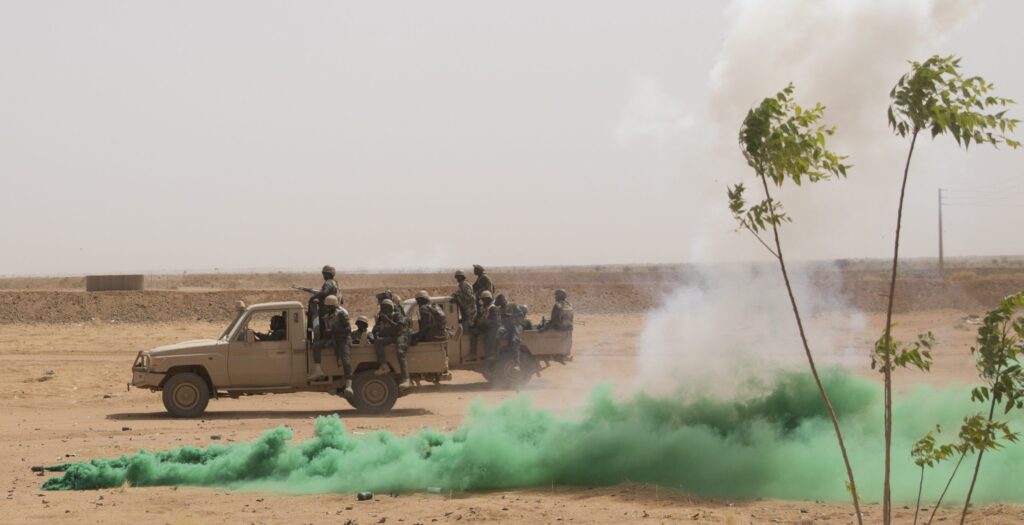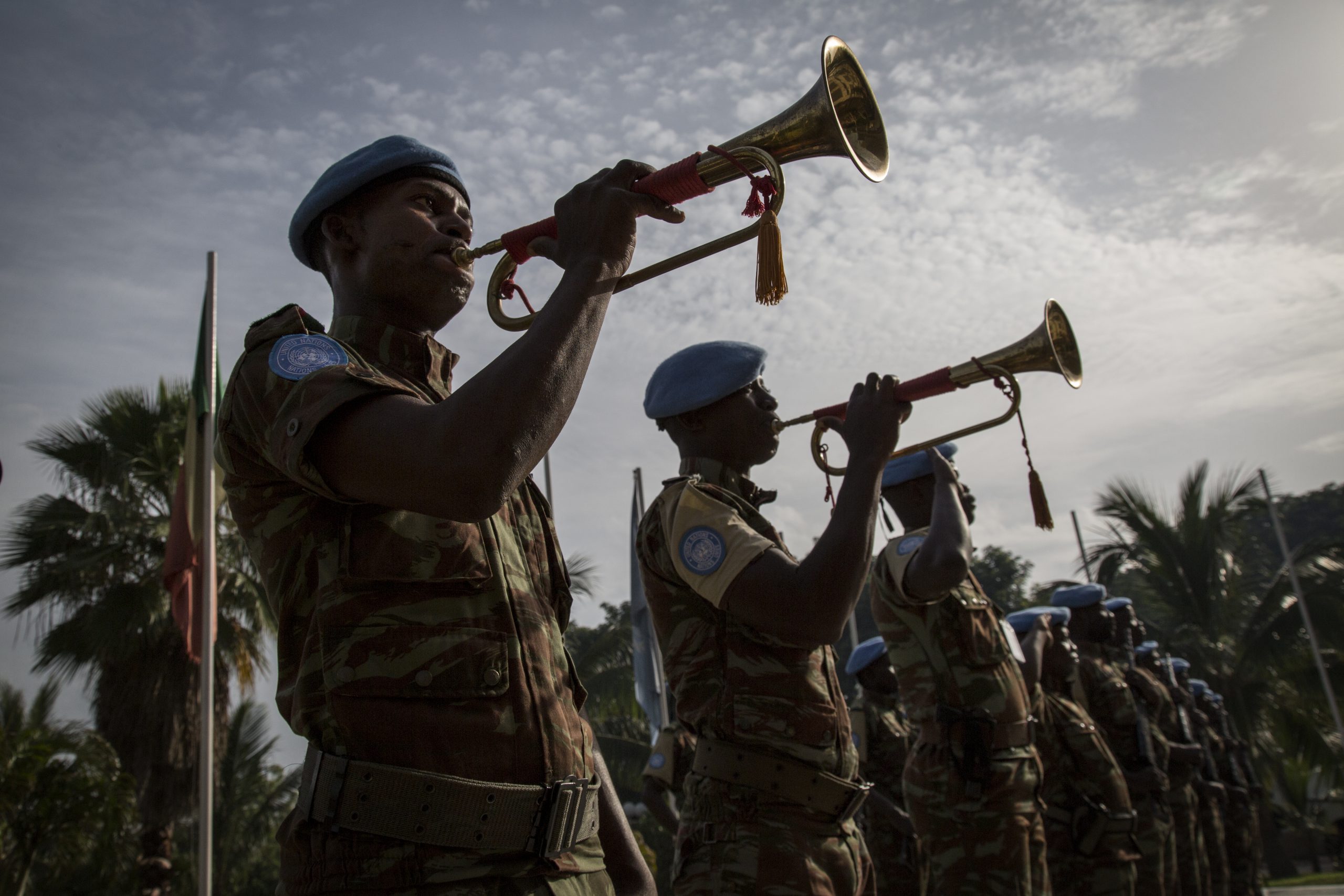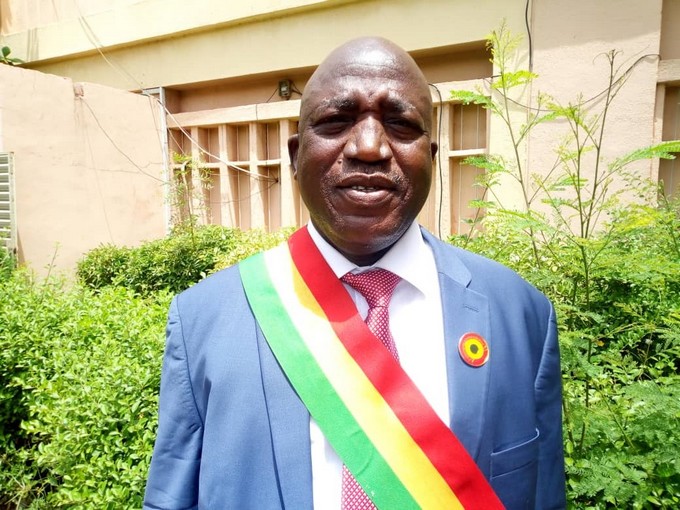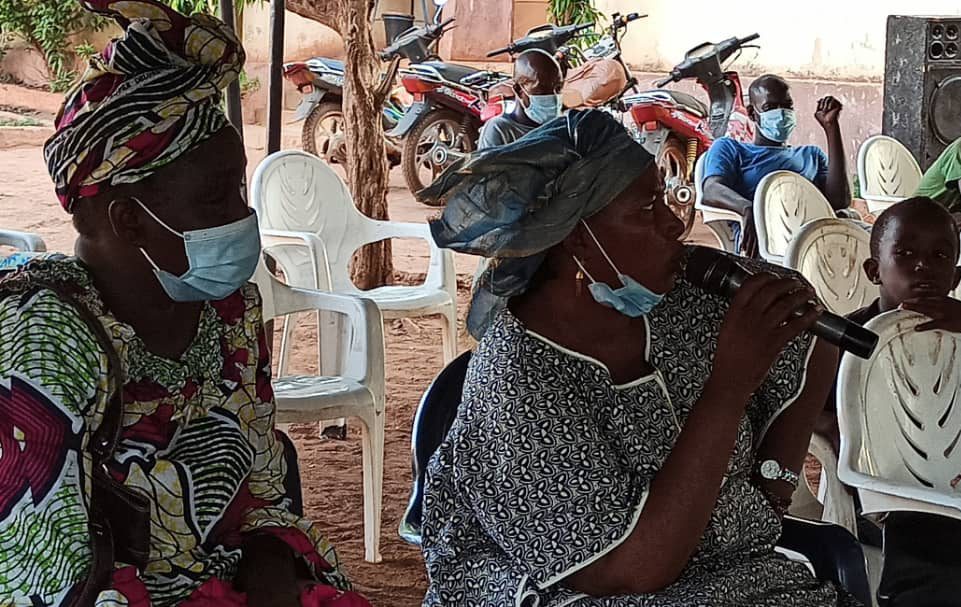Les soldats ne suffiront pas à aider le Sahel

Par Mirjam Tjassing, directrice régionale pour le Sahel au NIMD.
Il s'agit d'une traduction en anglais d'un article paru à l'origine dans le NRC (en néerlandais). Lire l'original ici.
L'année 2020 a été la plus meurtrière depuis le début de la crise au Sahel, il y a neuf ans. Les civils ont été confrontés à la violence des forces de sécurité et des groupes djihadistes, et le nombre de personnes déplacées a atteint 2 millions.
La semaine dernière, un sommet des pays du Sahel (Burkina Faso, Mali, Mauritanie, Niger et Tchad, réunis dans le "G5 Sahel") et de leurs partenaires internationaux a fait le point sur leurs efforts conjoints au Sahel. La France était présente : elle est intervenue au Mali en janvier 2013 et plus de 5 000 soldats français restent actifs dans la région. Mais les Pays-Bas, qui ont fourni des troupes à la force de l'ONU au Mali et qui officient désormais dans le cadre de l'opération "Barkhane" parrainée par la France, ont également pris la parole.
Ceux qui connaissent la région et savent lire entre les lignes du communiqué final du sommet de N'Djamena (Tchad) reconnaissent un léger malaise. Les succès militaires tactiques sont largement médiatisés, mais ils ne peuvent guère dissimuler le fait que la situation en matière de sécurité s'aggrave.
L'année dernière, quelque 7 000 personnes - militaires, djihadistes et civils - ont trouvé la mort au Sahel. Avec plus de 200 casques bleus originaires de pays de la région déjà tués, la "MINUSMA" est l'une des missions de l'ONU les plus meurtrières. Les Français ont également déploré la mort de 55 de leurs propres soldats dans le cadre de l'opération Barkhane. Mais la grande majorité des victimes sont des civils. La présence des troupes étrangères est donc de plus en plus critiquée et le sentiment anti-français, en particulier au Mali, s'accroît.

Les acteurs clés du Sahel ne peuvent plus échapper au fait que la solution à la crise ne peut pas être (uniquement) militaire. Les élites régionales commencent donc à admettre, à contrecœur, que la fourniture de services à la population contribuerait à la stabilité.
Mais au lieu de demander comment l'État peut améliorer ses services, l'accent est mis sur l'amélioration de la qualité des services. rétablir la présence de l'Etat dans les nombreux endroits du Sahel où il n'exerce plus de contrôle. On en revient donc à un agenda plus axé sur la souveraineté que sur le citoyen.
Quiconque prend la peine d'écouter les gens entend que l'État, dans sa forme actuelle, n'est pas vraiment le bienvenu. Les sociétés du Sahel connaissent d'énormes transitions résultant de la friction entre des sociétés encore partiellement féodales et l'État-nation moderne doté d'institutions de type occidental. Ces transitions s'accompagnent de changements déstabilisants dans les relations de pouvoir. Des institutions fortes et des élites politiques visionnaires sont nécessaires pour orienter ces transitions dans la bonne direction, mais elles font malheureusement défaut.
Les élites dirigeantes ont plutôt adopté des pratiques coloniales de gouvernance, abordant la population comme des sujets, au lieu de se mettre au service des citoyens. En conséquence, l'État est perçu comme un intrus.
En outre, les élites dirigeantes ne sont guère représentatives. En 2019, l'Institut néerlandais pour la démocratie multipartite a commandé des recherches au Mali, au Burkina Faso et au Niger sur les coûts de la fonction politique. Les résultats ont montré que les candidats investissent d'importantes sommes d'argent dans leurs campagnes électorales ; des sommes si importantes qu'elles sont disproportionnées par rapport à ce qu'ils peuvent attendre en termes de revenus formels plus tard en tant que membres du parlement.

La principale conclusion de l'étude est que le pouvoir politique est lucratif et qu'il est plus souvent acheté que gagné sur la base de programmes politiques.
Par conséquent, la politique n'a plus grand-chose à voir avec l'intérêt public. L'État est principalement au service d'une petite classe supérieure, celle-là même avec laquelle la communauté internationale fait des affaires pour améliorer la situation sécuritaire au Sahel. Il n'est pas surprenant qu'une poudrière d'inégalités et d'injustices entraîne des migrations et mine l'État de l'intérieur.
Depuis des années, les organisations de la société civile demandent que l'on se concentre moins sur l'armée et que l'on s'attaque aux lacunes en matière de gouvernance. Ce n'est que l'année dernière que le L'Institut sud-africain d'études de sécurité a déclaré que "Les réunions de haut niveau ne résoudront pas l'insécurité au Sahel", et au début de ce mois, l'Union européenne a déclaré qu'elle n'avait pas l'intention d'organiser des réunions de haut niveau. L'International Crisis Group a appelé à un "changement de cap dans la stratégie de stabilisation internationale". Les Coalition civile pour le Sahelune alliance d'organisations de la société civile, se demande pourquoi les autorités ne s'enorgueillissent que du nombre de terroristes qu'elles ont neutralisés, et non du nombre de civils qu'elles ont protégés. Le message de toutes ces organisations est le suivant : si vous n'écoutez pas les communautés locales, si vous ne les impliquez pas dans la prise de décision, alors vos investissements ne serviront à rien.

N'attendons pas que les choses tournent mal pour dialoguer avec la population. Le message envoyé est que vous ne serez écoutés que si vous prenez les armes. Aujourd'hui, les activités de participation, de médiation et de dialogue ne sont développées principalement que dans les zones et avec les groupes qui subissent déjà des violences. Nous devons nous éloigner de cet agenda réactif, axé sur l'urgence, et rechercher des solutions structurelles. Les initiatives de négociation et de médiation ne doivent pas se substituer à une démocratie fonctionnelle, participative et véritablement représentative.
Travailler sur la bonne gouvernance exige du courage politique. Il faut de l'endurance, il est difficile d'obtenir des résultats mesurables et il est rarement bien accueilli par les élites administratives sur le terrain. Mais il touche à l'essence même de la crise sécuritaire au Sahel, dont chaque étape vers une solution durable sert la population locale ainsi que les intérêts stratégiques des deux continents. Après tout, l'Afrique et l'Europe sont à deux pas l'une de l'autre.
Les Pays-Bas ont beaucoup à offrir : une culture de gouvernance égalitaire axée sur l'inclusion et la participation, et une politique de développement qui ne craint pas l'action politique. La stabilité ne peut être atteinte sans les populations du Sahel. Ils ont besoin des Pays-Bas, plus encore que de leur soutien militaire, comme alliés dans leur lutte pour la bonne gouvernance et la responsabilité.
Pour en savoir plus sur Mirjam la suivre sur les médias sociaux. Pour une vision plus approfondie du contexte politique du Mali, vous pouvez également commander son livre : Mali : une histoire d'amour en ligne.